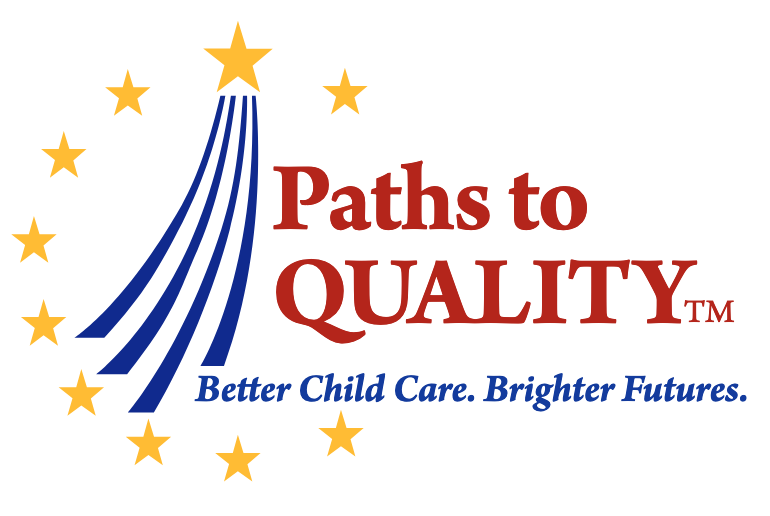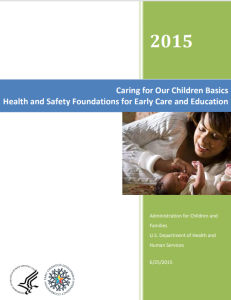Each state has established a set of standards for what young children should be learning, and what educators can do to support their development. In many states, these are either linked to or include kindergarten standards. While these standards are not a curriculum, they should inform curriculum and planning in family child care programs and serve as a reference for to skills children can develop in the early years.
Alabama Developmental Standards for Preschool Children
Alaska Early Learning Guidelines, Birth to Five
Arizona’s Infant and Toddler Developmental Guidelines, Arizona Department of Education Early Learning Standards
Arkansas Child Development and Early Learning Standards: Birth through 60 Months
California Infant/Toddler Learning and Development Foundations, California Preschool Learning Foundations
Colorado Early Learning and Development Guidelines (Birth through 8)
Connecticut’s Early Learning and Development Standards, Birth through Age 5
Delaware Early Learning Foundations (Infant/Toddler), Delaware Early Learning Foundations (Ages 3-5)
DC Common Core Aligned Early Learning Standards
Florida Early Learning Developmental Standards Birth to Five
Georgia Early Learning and Development Standards (GELDS)
Hawaii Early Learning and Development Standards (HELDS)
Idaho’s Early Learning Guidelines
Illinois Early Learning Guidelines for Children Age Birth to Age Three, Illinois Early Learning and Development Standards
Indiana Early Learning Standards
Kansas Early Learning Standards
Kentucky’s Early Childhood Standards: Birth Through Five
Louisiana’s Birth to Five Early Learning and Development Standards
Supporting Maine’s Infants and Toddlers: Guidelines for Learning and Development, Maine’s Early Learning and Development Standards (MELDS).
Massachusetts Early Learning Guidelines for Infants and Toddlers, Early Childhood Program Standards for Three and Four Year Olds, Preschool and Kindergarten Social and Emotional Learning (SEL) and Approaches to Play and Learning Standards, Guidelines for Preschool Learning Experience, Massachusetts Curriculum Framework
Michigan Early Childhood Standards of Quality for Prekindergarten, Michigan Academic Standards, Early Childhood Standards of Quality for Infant and Toddler Programs
Minnesota Early Childhood Indicators of Progress
Mississippi Early Learning Guidelines for Classrooms Serving Three and Four Year Old Children
Montana’s Early Learning Standards, Birth to Age Five
Nebraska’s Early Learning Guidelines (ELGs)
Nevada Infant and Toddler Early Learning Guidelines, Nevada Pre K Standards and Early Learning Guidelines
New Hampshire Learning Standards: Birth through Five
New Jersey Birth to Three Early Learning Standards, Preschool Teaching and Learning Standards
New Mexico Early Learning Guidelines, Birth Through Kindergarten
New York State Early Learning Guidelines
North Carolina Foundations for Early Learning and Development
North Dakota Early Learning Standards Birth to Kindergarten
Ohio’s Early Learning and Development Standards
Oklahoma Early Learning Guidelines for Infants, Toddlers, and Twos, Oklahoma Early Learning Guidelines for Children Ages Three Through Five
Oregon’s Early Learning and Kindergarten Guidelines
Pennsylvania’s Learning Standards for Early Childhood
Rhode Island Early Learning and Development Standards
South Carolina’s Infant and Toddler Guidelines, Good Start Grow Smart: South Carolina Early Learning Standards for 3, 4, & 5 Year Old Children
South Dakota Early Learning Guidelines
Tennessee Early Learning Developmental Standards
Texas Infant, Toddler, and Three Year Old Early Learning Guidelines, Texas Prekindergarten Guidelines
Utah Early Learning Guidelines for Birth to Age Three, Utah’s Early Childhood Core Standards (Preschool)
Vermont Early Learning Standards
Virginia’s Early Learning and Development Standards (ELDS), Birth-Five Learning Guidelines
Washington State Early Learning and Development Guidelines, Birth through 3rd Grade
West Virginia Early Learning Standards Framework: Infant/Toddler, Early Learning Standards Framework for West Virginia Pre-K
Wisconsin Model Early Learning Standards
Wyoming Early Learning Guidelines For Children Ages 0-3, Wyoming Early Learning Foundations For Children Ages 3-5
Research shows that high quality early childhood programs prepare children for future success in school, work and life. From birth through age 5 is the most important time for growth of the human brain. A child’s brain develops in response to the child’s experiences by building neurological networks in reaction to the environment.
A child’s experiences in a child care program can significantly contribute to that brain development and the future success of the child. High quality child care programs are essential, not only to Hoosier children, but also to their families and to the communities in which they live. Parents need stable, high quality care in order to be productive at work. They count on their child care provider to ensure that their child is safe, healthy and learning during those hours they must be at work. Our school systems need children who are entering school prepared and ready to succeed. Businesses need a high quality work force both now and in the future. In fact, studies have shown that high quality early childhood programs increase the graduation rate, reduce the future crime rate and can save up to sixteen dollars for every one dollar invested. High quality child care programs are essential to everyone.
In order to improve the quality of child care programs, states across the nation are using Quality Rating and Improvement Systems, such as the one here in Indiana, Paths to QUALITY™. Quality Rating and Improvement Systems assess the quality of care within a program, work to improve that quality level, and give families an easy to recognize symbol that makes the difficult decision of choosing child care easier. These systems also provide an accountability measure for funding and create an alignment between licensing, subsidy and quality across child care, Head Start and the Department of Education’s early learning guidelines.
Paths to QUALITY™ gives families an easy to recognize tool for selecting a child care program. Families can look for the Paths to QUALITY™ logo to determine what level their provider has achieved. Each level builds on the foundation of the previous one, resulting in significant quality improvements at each stage and in national accreditation at the highest level. The system validates child care programs for ongoing efforts to achieve higher standards of quality and provides incentives and awards for success. The four levels address:
- Level One: Health and safety needs of children met
- Level Two: Environment supports children’s learning
- Level Three: Planned curriculum guides child development and school readiness
- Level Four: National accreditation (the highest indicator of quality) is achieved
For more information on Paths to QUALITY™, please visit http://www.childcareindiana.org.
We asked family child care professionals what types of things they thought were most important to include in their contract and put together this tip sheet:
Top 5 Things to Include in Your Contract
Clearly defining your policies and following through on them is helpful for parents, for you as a professional, and also for maintaining the standards needed for licensing and high quality care.
Take some time to review and revise your program’s contract today!
This handbook from the Administration for Children and Families outlines health and safety guidelines for providers and would be a great resource for someone opening a family child care home. Caring for our Children Basics represents the minimum health and safety standards experts believe should be in place where children are cared for outside of their homes.
Standards on the following topics are included:
- Staffing
- Programs Activities for Healthy Development
- Health Promotion and Protection
- Nutrition and Food Service
- Facilities, Supplies, Equipment, and Environmental Health
- Play Areas/Playgrounds and Transportation
- Infectious Disease
- Policies
Professionalism refers to having the knowledge, skills, and qualities that are expected from a person who is trained to do a job well. In the recent past early childhood education has made great advancements in this regard and taken its place in the field of education. Family child care is also being taken more seriously as a quality choice for early care and education. FCC providers are now being considered professionals and educators. Therefore numerous choices for learning and improving skills as a FCC professional are becoming available.


